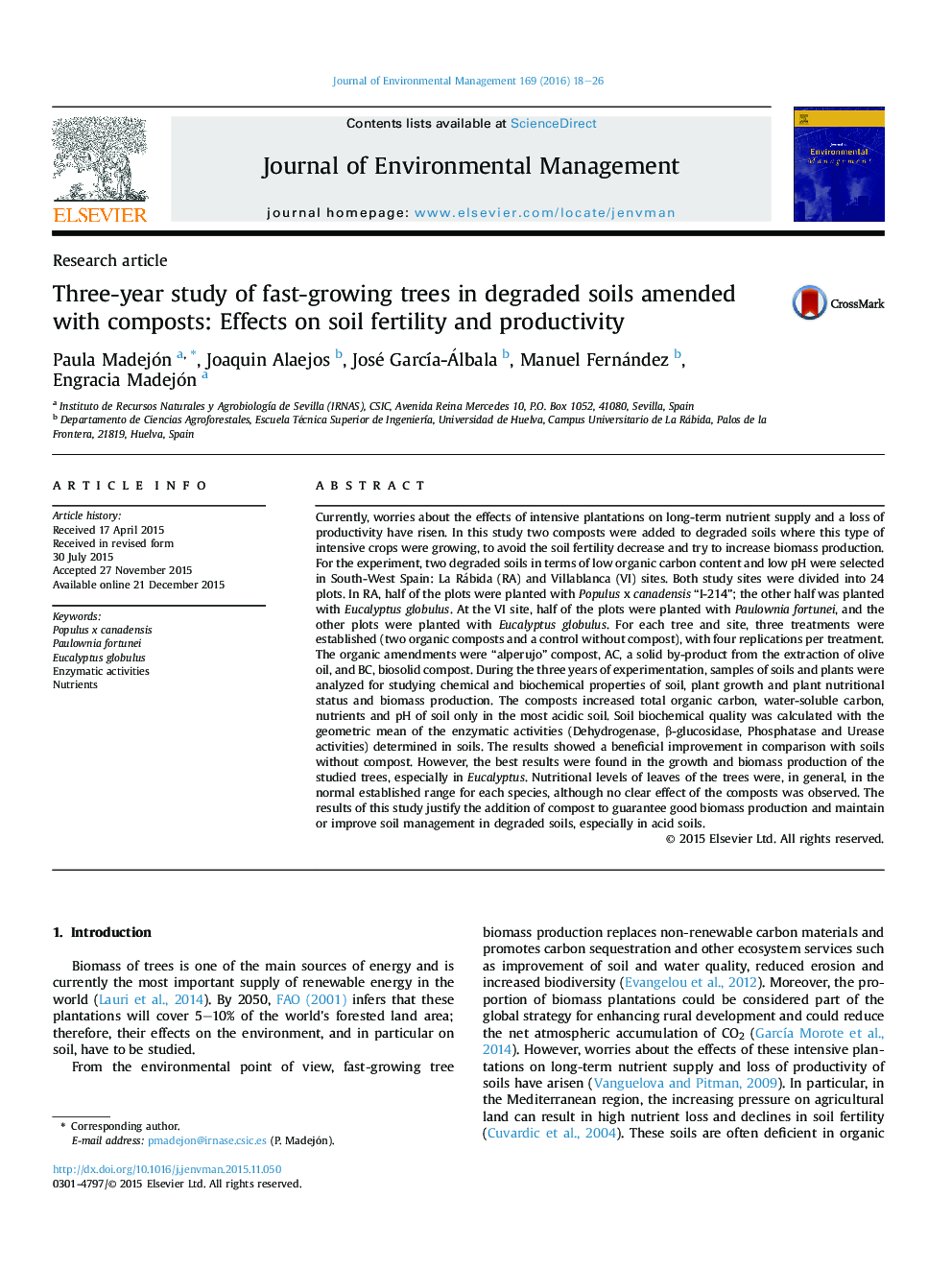| کد مقاله | کد نشریه | سال انتشار | مقاله انگلیسی | نسخه تمام متن |
|---|---|---|---|---|
| 1055432 | 1485243 | 2016 | 9 صفحه PDF | دانلود رایگان |
• Compost effects was evaluated in degraded soils planted with Populus, Paulownia and Eucalyptus.
• Composts increased pH values, total organic carbon, water-soluble carbon and nutrients of soils.
• Composts increased growth and biomass production of the trees, especially Eucalyptus.
• This study validate the use of compost for biomass production and for maintaining soil fertility.
Currently, worries about the effects of intensive plantations on long-term nutrient supply and a loss of productivity have risen. In this study two composts were added to degraded soils where this type of intensive crops were growing, to avoid the soil fertility decrease and try to increase biomass production. For the experiment, two degraded soils in terms of low organic carbon content and low pH were selected in South-West Spain: La Rábida (RA) and Villablanca (VI) sites. Both study sites were divided into 24 plots. In RA, half of the plots were planted with Populus x canadensis “I-214”; the other half was planted with Eucalyptus globulus. At the VI site, half of the plots were planted with Paulownia fortunei, and the other plots were planted with Eucalyptus globulus. For each tree and site, three treatments were established (two organic composts and a control without compost), with four replications per treatment. The organic amendments were “alperujo” compost, AC, a solid by-product from the extraction of olive oil, and BC, biosolid compost. During the three years of experimentation, samples of soils and plants were analyzed for studying chemical and biochemical properties of soil, plant growth and plant nutritional status and biomass production. The composts increased total organic carbon, water-soluble carbon, nutrients and pH of soil only in the most acidic soil. Soil biochemical quality was calculated with the geometric mean of the enzymatic activities (Dehydrogenase, β-glucosidase, Phosphatase and Urease activities) determined in soils. The results showed a beneficial improvement in comparison with soils without compost. However, the best results were found in the growth and biomass production of the studied trees, especially in Eucalyptus. Nutritional levels of leaves of the trees were, in general, in the normal established range for each species, although no clear effect of the composts was observed. The results of this study justify the addition of compost to guarantee good biomass production and maintain or improve soil management in degraded soils, especially in acid soils.
Journal: Journal of Environmental Management - Volume 169, 15 March 2016, Pages 18–26
